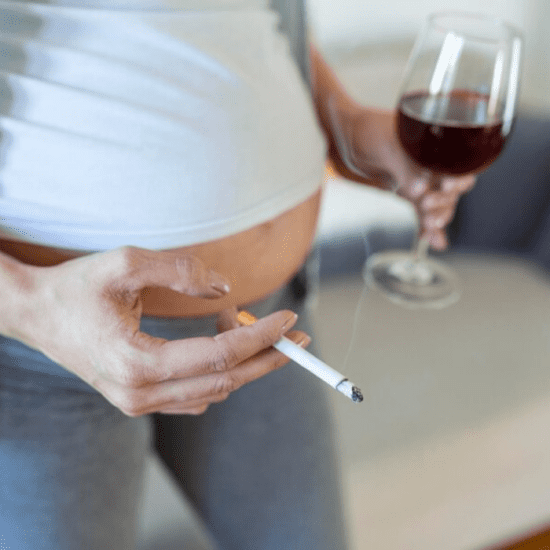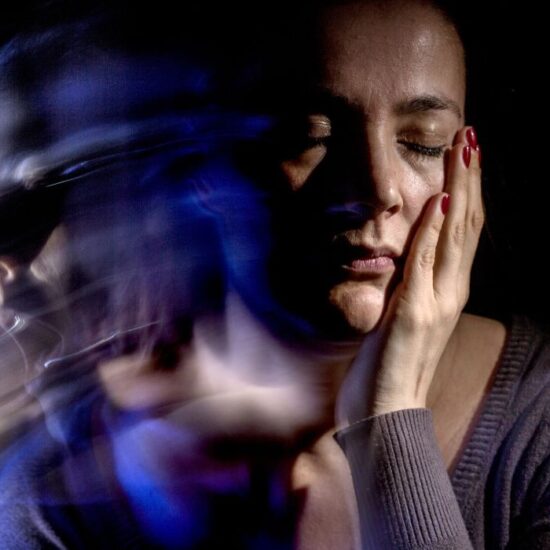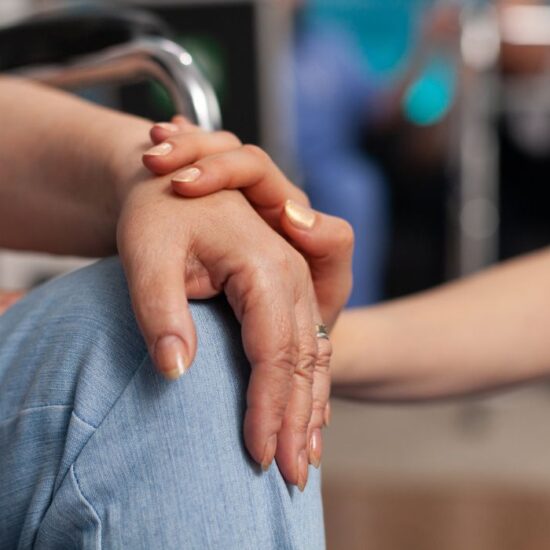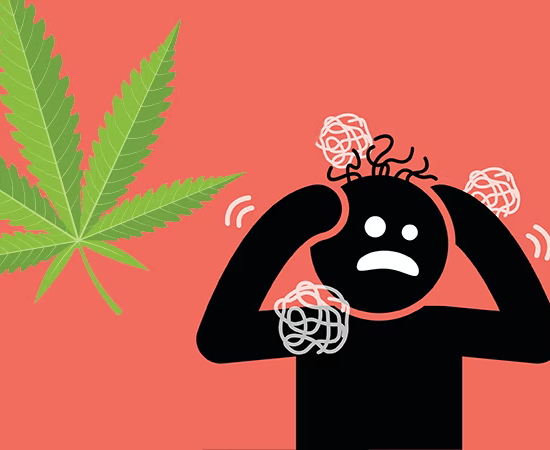Drug rehab is like a toolbox full of ways to help people who are struggling with drugs or alcohol. It includes things like medical detox to get rid of drugs safely, therapy to talk about problems, counseling to share feelings, support groups where people with similar experiences meet, and planning for life after rehab.
The main goal of drug rehab is to help people break free from addiction, take control of their lives again, and stay away from drugs or alcohol. It’s like giving them the tools to build a better future.
Now, many people wonder: “How long does drug rehab take?” Well, it depends. It’s different for each person. Things like how bad the addiction is, how long they’ve been using drugs, and how they’re feeling physically and mentally, all affect how long rehab will last.
To help someone get better, it’s important to treat them as a whole person, not just their addiction. Sometimes, if someone has been struggling with addiction for a long time, they might need to stay in rehab longer than someone who hasn’t been using drugs for as long.
Since addiction can stick around like a chronic illness, it’s important to have plans in place to help people stay on track after they leave rehab. These plans help them adjust to regular life again and keep getting support even after they finish rehab.
How often Does Drug Rehab Work?
Drug rehabilitation, often referred to as drug rehab, encompasses a variety of treatment approaches aimed at helping individuals overcome substance abuse and addiction. It involves a combination of medical, psychological, and social interventions tailored to address the specific needs of each individual.
- Address Underlying Issues: Programs seek to identify and address the underlying factors contributing to substance abuse, such as trauma, mental health disorders, or environmental stressors.
- Develop Coping Skills: Rehab programs teach effective coping mechanisms to manage cravings, triggers, and high-risk situations without resorting to substance use.
- Promote Behavioral Change: Through therapy and counseling, programs encourage positive behavioral changes and help individuals develop healthier habits and lifestyles.
- Provide Support: Emotional support, guidance, and encouragement are offered throughout the recovery journey, fostering a sense of community and accountability.
Types of drug rehab programs
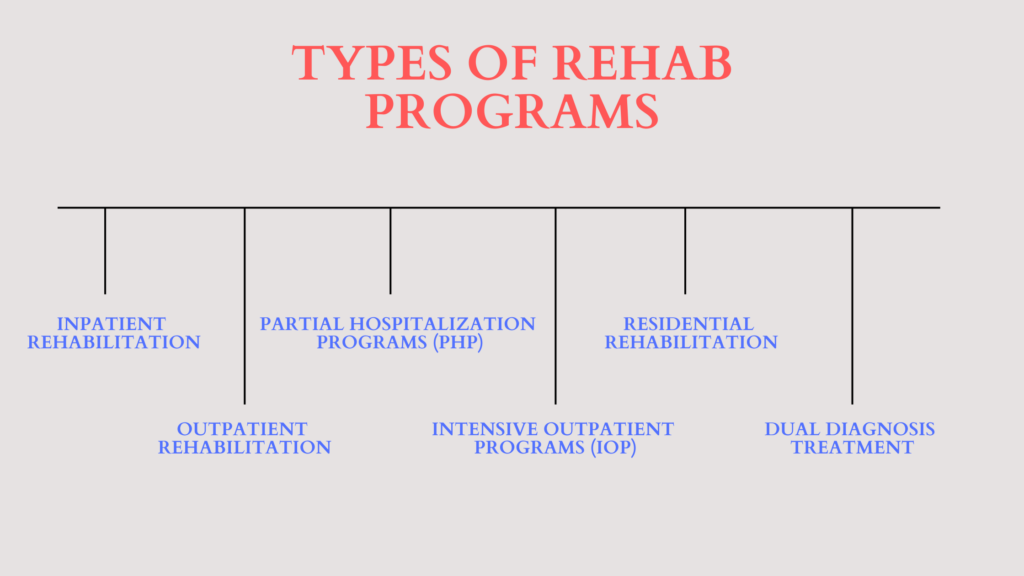
- Inpatient Rehabilitation: Full-time residential treatment for severe addiction or co-occurring mental health issues.
- Outpatient Rehabilitation: Treatment while living at home, suitable for mild to moderate addiction or work/school obligations.
- Partial Hospitalization Programs (PHP): Intensive daytime treatment for those requiring higher care than outpatient.
- Intensive Outpatient Programs (IOP): Structured, non-residential treatment for transitioning from inpatient or PHP or moderate addiction.
- Residential Rehabilitation: Long-term care in a therapeutic setting for chronic or severe addiction.
- Dual Diagnosis Treatment: Addresses substance abuse and co-occurring mental health disorders simultaneously.
How Effective Is Drug Rehabilitation?
Understanding the various factors that influence the duration of drug rehabilitation is crucial for tailoring treatment plans to meet individual needs effectively. These factors include:
Severity of Addiction:
The extent of addiction influences the duration of rehab, with severe cases requiring longer treatment periods for stabilization and recovery.
Type of Substance(s) Being Abused:
Different substances have varying effects on the body and brain, impacting the duration and intensity of withdrawal symptoms and treatment needs.
Co-Occurring Mental Health Disorders:
Individuals with underlying mental health issues often require integrated treatment for both addiction and mental illness, potentially prolonging the duration of rehab.
Individual Progress and Response to Treatment:
Response to therapy, medication, and behavioral interventions varies among individuals, affecting the length of time needed to achieve recovery goals.
Level of Support and Involvement from Family and Friends:
Strong social support can positively influence treatment outcomes and recovery progress, potentially shortening the duration of rehab by promoting motivation and accountability.
Individuals with co-occurring mental health disorders, for example, may require longer treatment durations to address both addiction and underlying psychiatric conditions effectively.
Typical Length of Drug Rehab Programs
Drug rehab programs vary in duration based on the type of treatment and the individual’s needs. Here’s an overview:

Inpatient/Residential Addiction Treatment
- Short-term (28-30 days): Provides intensive, focused treatment for individuals with acute addiction or those requiring stabilization.
- Long-term (60-90 days): Offers extended care for individuals with chronic or severe addiction, allowing for comprehensive treatment and relapse prevention.
- Extended Stay Programs: Provides flexible lengths of stay beyond the standard 90 days for individuals requiring additional support and recovery time.
Does Our Outpatient Treatment Model Work?
- Intensive Outpatient Programs (IOP): Typically involves multiple sessions per week, allowing individuals to receive structured treatment while maintaining their daily responsibilities.
- Partial Hospitalization Programs (PHP): Offers intensive daytime treatment with structured therapy and support, providing a higher level of care than standard outpatient programs.
- Standard Outpatient Programs: Provides regular therapy sessions and support for individuals with mild to moderate addiction who do not require intensive treatment.
Residential Addiction Treatment
- Therapeutic Communities: Involves long-term residential treatment in a supportive community setting, focusing on holistic recovery and reintegration into society.
- Sober Living Homes: Provides a transitional living environment for individuals completing rehab, offering support and accountability while adjusting to independent living.
The length of drug rehab programs may vary depending on individual progress, response to treatment, and specific program requirements. Individuals need to work closely with healthcare professionals to determine the most appropriate treatment duration for their recovery journey.
Advantages and Disadvantages of Different Program Lengths
| Aspect | Outpatient Rehab | Inpatient Rehab |
| Setting | Treatment sessions attended while living at home | Full-time residential treatment |
| Intensity of Treatment | Typically less intensive | Highly intensive, with round-the-clock care and support |
| Duration of Treatment | Varies, often several hours per week | Typically ranges from 28 days to 90 days or longer |
| Supervision | Limited supervision during treatment sessions | Constant supervision and support |
| Flexibility | Offers flexibility to attend treatment around obligations | Requires individuals to reside at the treatment facility |
| Access to Support | Continued support from family and community resources | Immediate assistance and support from treatment staff |
| Cost | Generally more affordable than inpatient programs | Often more expensive due to the comprehensive care provided |
| Triggers and Environment | Continued exposure to triggers and environments | Structured environment free from external triggers |
| Suitability | Suitable for mild to moderate addiction or obligations | Suitable for severe addiction or co-occurring disorders |
How Does Relapse Affect Drug Rehab Effectiveness?
The effectiveness of drug rehab programs can vary widely depending on various factors such as the type of addiction, the severity of the addiction, the individual’s commitment to treatment, the quality of the program, and the presence of co-occurring disorders.
- National Institute on Drug Abuse (NIDA): NIDA suggests that the success rates of drug rehab programs typically range from 40% to 60%, these figures can vary depending on the specific program and population studied.
- Substance Abuse and Mental Health Services Administration (SAMHSA): SAMHSA indicates that individuals who complete drug rehab programs have higher rates of sustained recovery compared to those who drop out prematurely.
- Long-Term Studies: Some long-term studies suggest that while relapse rates can be high initially, individuals who remain abstinent for longer periods are more likely to maintain sobriety in the long term.
- Evidence-Based Treatments: Research supports the effectiveness of evidence-based treatments such as cognitive-behavioral therapy (CBT), contingency management, and medication-assisted treatment (MAT) for certain types of substance use disorders.
It’s essential to interpret these statistics with caution and recognize that recovery is a highly individualized process. Success rates can also be influenced by factors such as the duration of treatment, the presence of a strong support system, and ongoing aftercare.
Factors influencing the effectiveness of drug rehab
- Individualized Treatment: Tailoring treatment plans to meet the specific needs of each individual can enhance effectiveness. Factors such as co-occurring mental health disorders, trauma history, and socioeconomic factors should be considered.
- Quality of Care: The quality of the rehab program, including the qualifications of staff, evidence-based approaches, and access to medical and psychological support, significantly influences outcomes.
- Continuum of Care: Providing comprehensive care that includes detoxification, therapy, medication management (if applicable), and aftercare support can improve long-term success rates.
- Support System: A strong support network of family, friends, and peers can positively impact recovery outcomes by providing encouragement, accountability, and assistance during challenging times.
- Motivation and Commitment: Individuals who are motivated to change and actively participate in their treatment process are more likely to achieve positive outcomes.
- Addressing Underlying Issues: Effective rehab programs address underlying issues contributing to addiction, such as trauma, unresolved emotional issues, or dysfunctional relationships.
- Aftercare and Relapse Prevention: Continued support through aftercare programs, support groups, and relapse prevention strategies can help individuals maintain sobriety and cope with triggers in the long term.
Factors That Contribute to Successful Completion of Drug Rehab
Motivation and commitment to recovery
Motivation and commitment are vital for completing drug rehab successfully. Individuals who are genuinely committed to overcoming addiction are more likely to stay focused and complete the program.
Support system and aftercare planning
Having a strong support system and a well-thought-out aftercare plan significantly increases the chances of successful rehab completion. Family, friends, and healthcare professionals provide encouragement and accountability, while aftercare resources aid in maintaining sobriety post-rehab.
Continued engagement in therapy and support groups
Active participation in therapy and support groups is crucial for successful rehab. These activities help individuals understand underlying issues, develop coping skills, and foster peer support, reinforcing recovery efforts.
Addressing underlying issues and triggers
Effective rehab programs delve into the root causes of addiction, such as trauma or mental health issues. By addressing these triggers, individuals can learn healthier coping mechanisms, reducing the risk of relapse.
FAQs
Que: How long does drug therapy take to work?
Ans: When selecting a program, prioritizing long-term success is key. Many individuals aiming for recovery discover that spending a minimum of three months in treatment to achieve sobriety and establish a plan for ongoing recovery yields the best results for them.
Que: What are the disadvantages of drug therapy?
Ans: Not all individuals respond positively to psychiatric medications.
It may take weeks or even months for psychiatric medications to demonstrate their effectiveness.
Side effects such as weight gain, fatigue, sexual dysfunction, or dizziness may occur in some individuals taking psychiatric medications.
Que: What is the success rate of therapy?
Ans: While treatments may be effective for most individuals, some may experience minimal to no benefits. Nevertheless, approximately 75% of people generally derive advantages from psychotherapy for their mental health.
Conclusion:
In conclusion, drug rehabilitation is a complex journey influenced by various factors. From tailored treatment plans to ongoing support, every aspect plays a crucial role in achieving successful recovery. If you or someone you know is struggling with addiction, don’t hesitate to seek help. Recovery is possible, and support is available. Take the first step towards a healthier, happier life today.

